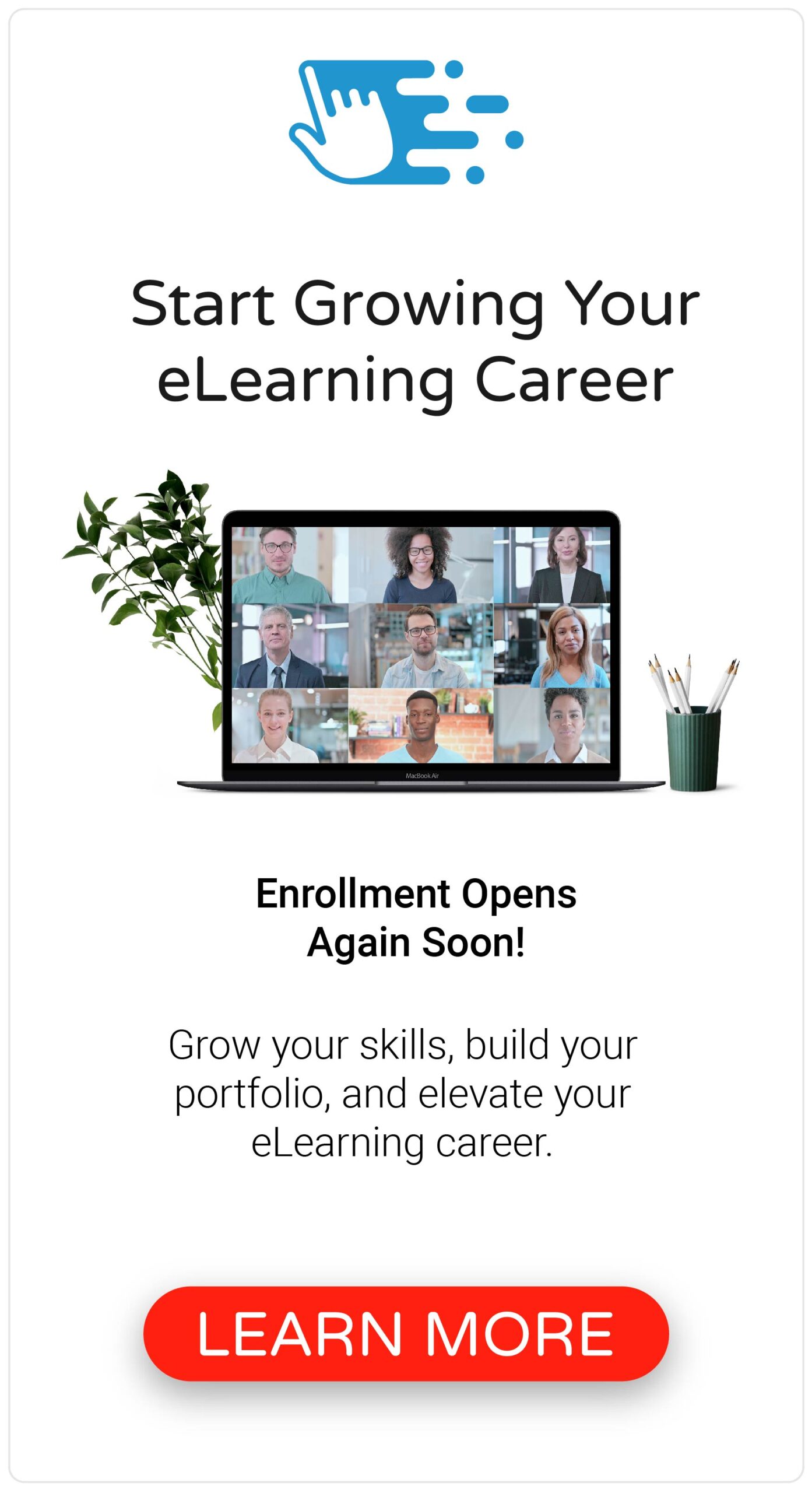Working with subject matter experts (SMEs) isn’t always the easiest part of developing an eLearning course. Subject matter experts can sometimes be demanding. And they can even (unintentionally) be barriers to success if they are uninterested in the development process or instructional design standards. But they play an important role for you as an eLearning developer.
The truth is, you and your subject matter experts need each other! They possess the information you need to solve their problem—it’s symbiosis! The bottom line is, when it comes to developing an eLearning course, it’s your job to maintain a positive relationship with your subject matter experts.
Here are six mistakes to avoid when working with subject matter experts.
Not Defining Good eLearning

After working in the field of eLearning for many years, it’s easy to forget that not everyone knows what good eLearning is! This is especially true when you’re working with subject matter experts. More often than not, the subject matter experts you work with are not in the learning and development field.
When working with subject matter experts, don’t make the mistake of assuming they can recognize good eLearning. Subject matter experts might have a vague idea about the concepts of computer-based training, but their knowledge might be five, 10, or 15 years out-of-date. When you first meet with your subject matter experts, make a point to educate them about the qualities of good eLearning design. Show them examples of your work, and encourage them to ask questions. Don’t end that meeting until you’re on the same page!
Not Educating Them About the Development Process

Just like the previous mistake, it’s easy to assume your subject matter experts understand the overall eLearning development or project management process. Although your subject matter experts may have been involved in many different projects, that’s no guarantee they’ll understand things like storyboards, prototypes, or review cycles.
When working with subject matter experts, don’t make the mistake of failing to educate them about the eLearning development process. During your initial meetings, take the time to explain the development process and the purpose behind it. Explain what they should expect during each phase of the process, and explain any terms they may not understand. Ask questions during your initial kickoff meeting to learn what perceptions they have about eLearning. Taking the extra time to educate your subject matter experts not only makes your life easier, but it also demonstrates your expertise and builds credibility.
Not Clarifying Their Role

Not all subject matter experts are the same: some like to be heavily involved, and others barely have time to respond to your work. Either way, it’s your job to clarify what role they play in the eLearning development process. As I mentioned earlier, you and your subject matter experts need each other. They possess the information you need to solve their problem. Your job is to get it from them (hopefully without being too much of a pest).
When working with subject matter experts, don’t make the mistake of letting them make assumptions. When you fail to set expectations with your subject matter experts, you run the risk of losing control of the project or finding they have disengaged altogether. Make sure to explain to your subject matter experts what you need from them when you deliver a storyboard for review or the frequency in which you need to meet. Creating an eLearning project plan is an excellent way to establish accountability and ensure your subject matter experts play an active role throughout the project.
Not Providing Clear Deadlines

Because many subject matter experts have never worked on the development of an eLearning course, they can underestimate the time and commitment required from them. Many subject matter experts believe their only job is to tell you what they want and wait for the final product. Because of this, they may fail to dedicate the time required to participate in the development process. You can show them a better way, but they will likely need your guidance.
When working with subject matter experts, make sure they have a clear understanding of their deadlines. Do this by creating a project schedule that indicates who is responsible for each deliverable. Share this with your subject matter experts and give them the opportunity to compare it against their schedule and workload. Be willing to let them alter the dates if necessary. It’s always better to work out kinks in the project schedule as early as possible.
Not Discussing Their Goals

Too often, subject matter experts think of eLearning in terms of what learners need to be “aware of.” In reality, learners don’t need to “be aware” of anything! What learners really need is the knowledge, skills, and practice to change or emulate specific behaviors. This is important because behaviors tend to have a direct correlation to a business result and are measurable against a goal.
When working with subject matter experts, don’t make the mistake of not discussing their goals for the course. What measurable results are your subject matter experts hoping to achieve as a result of learners taking the course? Even if they can’t answer that question, it shows you’re interested in helping them achieve positive business results.
Not Validating What They Tell You

If I’ve learned one thing about working with subject matter experts, it’s that they’re not always right. Oftentimes, they will provide you with information based on what they think should be or what once was. As eLearning designers and instructional designers, it’s our job to make sure we provide the most accurate information to our learners.
When working with subject matter experts, don’t make the mistake of not validating what they tell you. This doesn’t mean you shouldn’t trust your SMEs, but rather, you should take the extra step to validate the information being provided. Not only will this ensure your learners are provided with the best information, but it’ll also help you gain greater context with the content you’re creating.
The Bottom Line
Out of all of the tasks required to build an effective and engaging eLearning course, working with your subject matter experts is perhaps one of the most important. In many instances, the relationship you create and maintain with your SMEs can directly correlate to the success of your projects.
If you’d like to learn more about managing your eLearning projects, check out this post.
How else do you set yourself up for success when working with subject matter experts? Share your tips by commenting below!








